I was at Ryoanji Temple in Kyoto a couple weekends ago and stopped in the 湯豆腐 (boiled tofu) restaurant on the grounds as I almost always do. A friend and I split a single serving (enough for two unless you really like your boiled tofu) and took in the view of the pristine garden.
A couple came in at some point and ordered their food and drink. When they ordered their drinks, the guy said, ビールを一つと、ジュースを一つ. Simple enough: one beer and one juice.
The lady’s reply was awesome: ジュースは、コーラ、アップル、どっちがいいですか。Something like, “Which juice do you want, Coke or apple?”
I smiled and basked in the linguistic awesomeness that allows me to make the following sets of equalities and inequalities:
ジュース = 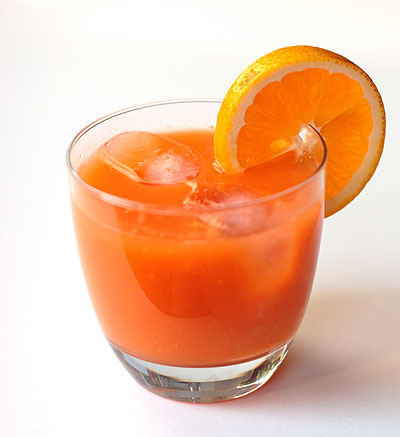
juice = 
juice ≠ 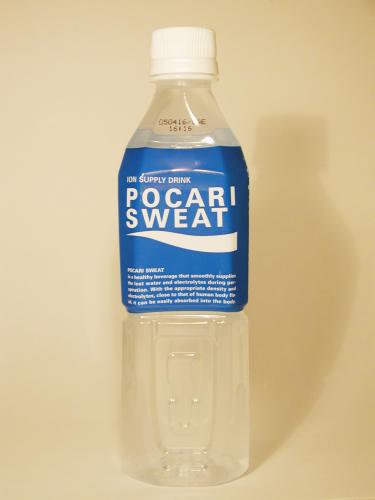
ジュース = 
ジュース = 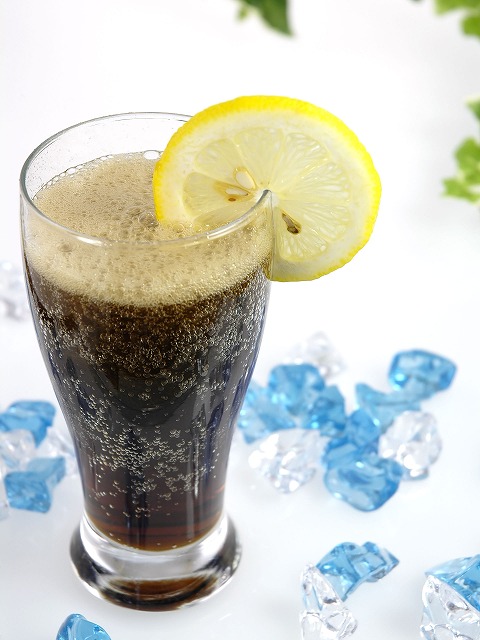
ジュース = 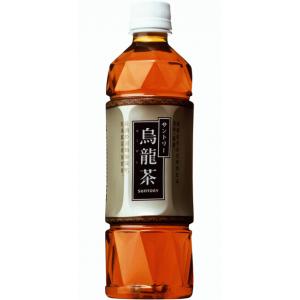
ジュース ≠ 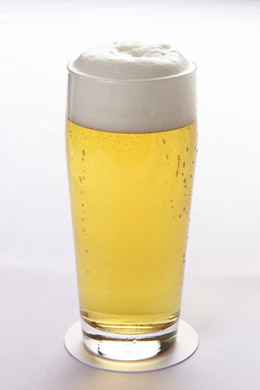
Wikipedia explains that beverage companies long sold soft drinks under the label ジュース, and the name has stuck despite the Japan Agricultural Standards’ best attempts to define it as stuff from fruit.
I was surprised that Wikipedia didn’t mention anything about alcohol. I have this impression that ジュース implies non-alcoholic, which is why I added that last equation. Part of this comes from vast 宴会 experience. At the start of an enkai, tables or trays are supplied with bottled beer and a selection of non-booze – usually ginger ale, orange drink, oolong tea and cola. (People dip into nihonshu and shochu after the initial toast.)
ジュース also happens to be one of my favorite words to over-enunciate. ジューーース.

Very interesting! It brings to mind that notorious map of the different names for soda in the US, and especially the prevalence of “coke” as a catch-all term in the South. “What kind of coke would you like with that? Root beer? Ok.”
I haven’t looked at a karaoke menu for a while, but aren’t a lot of things that aren’t fruit juice also listed under ジュース as well?
This is hilarious. But I agree with Amy, the first thing that came to mind was how in Texas, we’d ask people “What kind of coke would you like–Sprite or Dr. Pepper?” and everyone knew exactly what you meant…
Coke and other carbonated beverages are often referred to as \juice\ in Scotland.
I dispute the claim that oolong tea is ジュース! That’s お茶! Let’s get some native speakers in here to settle this.
According to Sachi お茶 ≠ ジュース. But this seems like a difficult metaphysical question–it’s over my head.
Also wondering about ミックスジュース.
Let’s get some native speakers in here to settle this.
Ah, ha! Turns out facebook friend Yoshiko had this to say on my facebook feed just before Matt and Nick commented:
英語のjuiceはウーロン茶は入らないんだね・・・。びっくりです。
Bikkuri indeed. Not that it isn’t 茶. It just also happens to is ジュース. One theory here is that ウーロン茶 is ジュース whereas 烏龍茶 is お茶? Perhaps something with hot and cold? One other requirement of ジュース might be refrigeration? (Also true of juice…except for apple cider?)
It seems like ジュース might be just as disputed as the great coke-pop-soda debate (very cool map!) that everyone has mentioned. And I like Alex’s example of the karaoke menu, which I think would further support my non-alcoholic point. Interesting that Scotland uses juice in this way, too!
I agree with the karaoke bar menu: everything and its grandmother is listed under ジュース in those places! Personally, I’ve never heard anyone refer to ジュース other than unless they meant the stuff that’s made of fruit juice, but the very fact that in English we call it ‘fruit juice’ would say to me that there are definitely other juices about also..
Apart from fruit juice, there is also meat juice. I think the English “juice” actually refers to stuff that comes out when you squeeze something.
Of course, the word has implications beyond its literal meaning in English too.
“After a night on the juice in Yokohama, he felt frail at work for much of the following week.”
“You’ve been to the finest school, all right … but you only used to get juiced in it.”
In the days when I used to escort non-drinking (hah! another term with extended implications) females around Tokyo, we often had occasion to ask what ‘ジュース” were available. The answers often included oolong tea.
But you can’t always trust these bartenders. Some of them use the English word “aggressive” to mean “definintely poisonous, and potentially lethal.”.
Excellent point, Mr. Grandad, sir. Now that I think about it, many baseball players have been outed recently for being juiced up in a much different sense. Back in the early ’90s people thought the balls were juiced, but then Barry Bonds’ head started to require specially sized helmets.
I feel like much less of a heel for 返品ing that glass of yeast sludge now that I’ve heard literally everyone I met at the bar that night report at least one tale of woe directly traceable to the beers available there.
In all my years speaking Japanese I’ve never ceased to be amazed at this abuse of the word ジュース. And as a 下戸 who’s been to his share of enkai, I have to add another mysterious lingual crime: when you ask for オレンジジュース at a bar in Japan, they inevitably bring out Bireley’s. I don’t know what you squeeze to make a Bireley’s, bit it isn’t oranges.
Pingback: How to Japonese» Blog Archive » ジュース redux